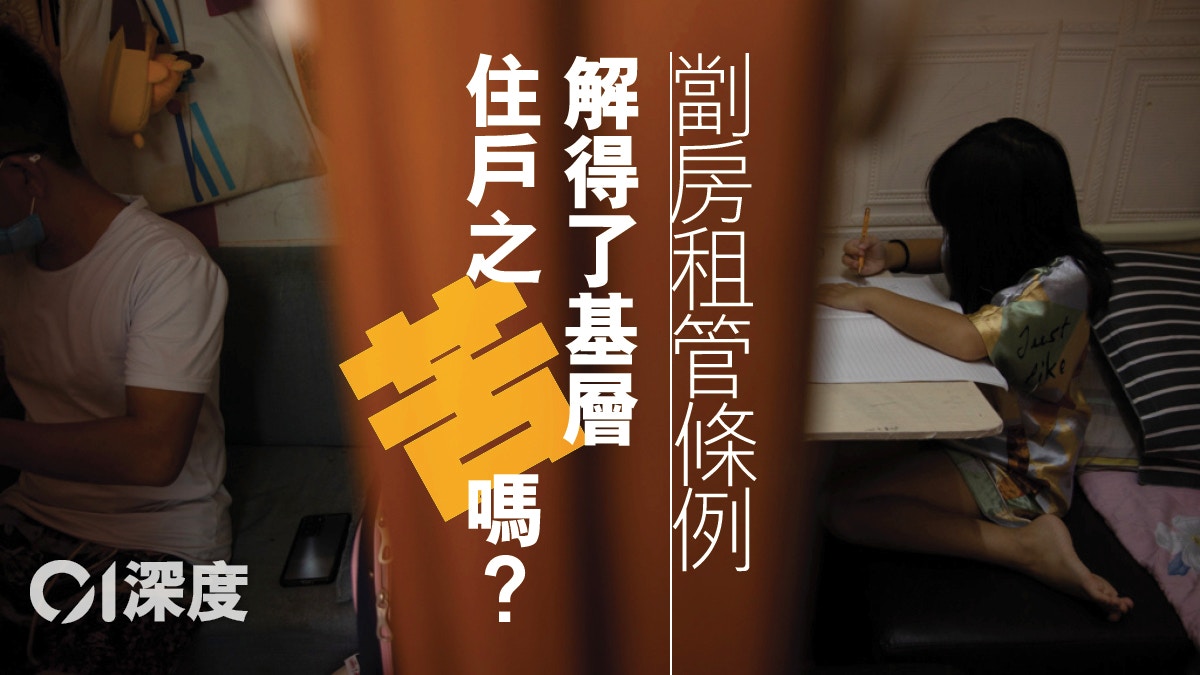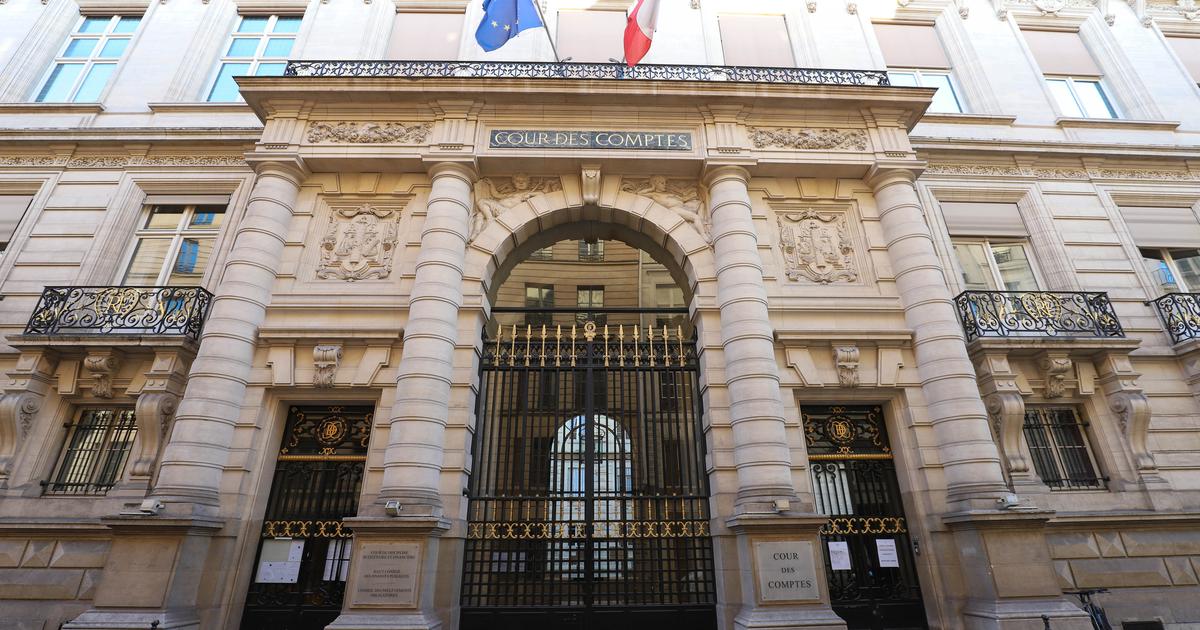The Legislative Council passed the "2021 Landlord and Tenant (Comprehensive) (Amendment) Amendment Draft" (hereinafter referred to as the "Draft") that implements the "Sub-House Rental Control" in the third reading of the Legislative Council last Wednesday (October 20). It will be implemented in January.
Among them, tenants are allowed to have the right of "2+2" four-year tenancy, and the landlord's rent increase cannot exceed 10%. It seems that this has taken a big step to protect the rights and interests of residents of subdivided housing; however, the "Draft" still has a lot of Loopholes are really not enough to solve the suffering of the grassroots.
The Legislative Council passed the "2021 Landlord and Tenant (Comprehensive) (Amendment) Amendment Draft" last week, but there are many loopholes in it, and it is difficult to effectively relieve the difficulties of subdivided housing tenants.
(Profile picture)
In recent years, the severe housing problem has spawned a large number of bad-environment and suspiciously safe housing rentals. When demand exceeds supply and there is no control, many unscrupulous landlords often overcharge water and electricity bills, and even increase rents arbitrarily when renewing the lease, resulting in tenants. Unable to increase the rate and was forced to relocate.
The SAR government set up a "subdivided housing" tenancy control research group last year, and then drafted the Landlord and Tenant (Consolidation) (Amendment) Bill 2021 based on the report of the group.
This is a measure that can protect the basic rights and interests of tenants, but after more than half a year of deliberation, there are still many loopholes.
The rent increase is capped at 10%:
Is it encouraging business or regulating sub-divided housing?
The outside world generally expects that the "Draft" can effectively stop the problem of sudden forced evictions and crazy rent increases.
However, the approach adopted by the "Draft" allows tenants to have a "2+2" four-year lease, and the rent can only be reduced for the first two years, but cannot be increased, but the rent can be increased by up to 10% in the next two years. .
The rent of this mere 10% may be even more burdensome to basic-level households with a very low monthly income.
It is worth mentioning that the "Draft" originally set a ceiling of 15% for rent increase. After it was announced, it was widely criticized that the government was in disguise as encouraging owners to operate sub-divided houses instead of regulating sub-divided houses. Then it was lowered to 10%, but it was still quite the same. It is absurd, because according to Wu Kunlian, a member of the Kwai Chung Sub-House Residents Alliance, the average rent increase for sub-house tenants has reached 6% to 7%, and the upper limit of 10% is obviously too high.
Wu Kunlian and others originally suggested that the authorities should determine the rate of rent increase based on the inflation rate in order to be more in line with the affordability of the grassroots.
Another reasonable approach is that if the "Draft" has a "starting rent" that can understand the suffering of the grassroots, then even if the landlord increases the rent, it is believed that the tenant's burden will be relatively low; moreover, this can also effectively prevent Temporary rent increases during the "window period" before the "Draft" is officially implemented.
However, during the entire review process, no matter how the concerned groups expressed their opinions, the Secretary for Transport and Housing, Chen Fan, always insisted not to consider setting the initial rent for the time being, because the authorities believe that most landlords will not increase rents in advance.
This kind of wishful thinking obviously differs greatly from the actual situation.
The organizer of the Kwun Tong Residents Concern Group Chen Yingtong once reported that after the authorities submitted the "Draft", tenants of the subdivided houses had been increased by 7% to 10% by the landlord, or they were required to sign new contracts early.
Residents in sub-divided houses face a harsh living environment.
(Profile picture)
A 50-member team from the Evaluation Department followed up law enforcement:
How can we deal with tens of thousands of
organization
disputes?
As for the overcharge of utility bills by landlords, the "Draft" stipulates that when subdivided house owners charge for public facilities, they must provide tenants with a copy of the bill and an arrangement for sharing. Conviction; if the owner overcharges fees, the first conviction will be fined 10,000 yuan, and the second offence will be fined 25,000 yuan. The Rating and Valuation Department will be responsible for enforcement actions.
The Evaluation Department will set up a 50-person team to follow up the relevant work.
On the one hand, the government is finally willing to formulate legally effective penalties for this, which is finally a very important step; however, on the other hand, the departments responsible for cracking down on illegal housing in the past are extremely inefficient, and housing rental disputes are frequent. There are tens of thousands, but the "Draft" has not added more implementation details, nor has it clarified how much law enforcement power the Evaluation Department has. This inevitably makes people worry that the 50-person team of the Evaluation Department may not be able to strictly inspect the subdivided houses one by one. Chaos.
Furthermore, the Bureau of Estimates and Estimates already has mediation and lease consulting services, and the government has also set up a hotline for tenants to report overcharging of utility bills. After the implementation of the "Draft", if the authorities want to wait for tenants to seek advice from the Bureau of Estimates Taking action after assisting is really putting the cart before the horse, failing to take the initiative to crack down on illegal activities.
Chen Fan, Director of the Transport and Housing Bureau, said that the government will arrange law enforcement work appropriately.
(Information Picture/Photographed by Lu Yiming)
The voice of the grassroots is not audible:
to whom should the government's scales lean?
In fact, there has never been a lack of pertinent suggestions and voices in the society, and the "Draft" drafted by the authorities and passed by the Legislative Council still has so many ill-conceived areas, as if those public opinions were not included.
As early as 2004, when the original rent control and the protection of rental rights were completely abolished, many grassroots tenants in Hong Kong have been exploited by landlords, including some sub-divided tenants.
Although civil organizations such as the Alliance to Defend the Rights and Interests of Grassroots Housing at the time had long asked the government to protect the rights and interests of grassroots tenants, the problem of subdivided housing was not as serious as it is now, and the concern groups have not formed a scale for this, so relevant issues have been difficult to attract social attention. And the government pays attention.
Wu Kunlian, a member of the "Kwai Chung Residential Residents Alliance", has been concerned about the housing problem at the grassroots level for many years. He was interviewed by "Hong Kong 01" earlier and mentioned that when members of the alliance with different seniority gather together for a meeting, they will find that the grassroots tenants are facing the environment. The horror, overcharging of utility bills, and forced evictions of owners have never been taken seriously by the SAR government.
With the rapid increase in the number of subdivided houses, and fatal accidents caused by overburden of electricity and insufficient fire-fighting equipment from time to time, the demand for subdivided housing control in the society has become more and more high. The vehicle has been reversed repeatedly, but in the "Long-term Housing Strategy" announced by the government in 2014, the subdivided rent management was rejected.
After many twists and turns, the "Landlords and Tenants (Consolidation) (Amendment) Bill 2021," which has been called out for many years, still cannot provide sufficient protection for sub-house tenants. It is really difficult to solve the suffering of the grassroots tenants.
The SAR government must not think that passing the "Draft" means everything is going to be good. It must continue to improve regulations in accordance with the actual situation, and massively expropriate land to speed up the construction of public housing, so as to truly protect the people's "right to adequate housing."
+1







